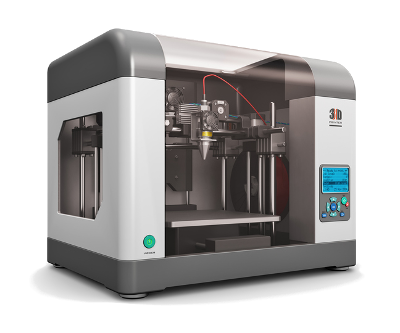When thinking about a new invention, it could be thought of as the sum of several components. There may be aspects of its implicit value such as the way an invention works, its ornamental appearance, style, and/or artistic flair. Alternatively, you might also consider the opportunity costs of not protecting the marketable value of your invention. This essentially boils down to consumer recognition and the reputation of your inventions--such as preventing competitors from making a low-quality version of your invention, preventing consumers from using your invention in undesirable ways, or not being able to control your invention’s fate because its stuck in a bad business deal.
Carefully acquiring rights to an invention, along with mitigating risks in the commercialization process, is prudent protection strategy. Having the exclusive right to a specific product or service can be a strong competitive advantage. Protecting your innovation by using intellectual property creates a boundary to ensure you have a legal right to protect others from trespassing. It’s also a wise idea to carefully consider the interplay of intellectual property rights with corporate formation and monetizing strategies, to limit risks at the next logical step which is commercializing your invention.

Types of IP and Their Primary Uses
There tends to be a misconception among many inventors that intellectual property means patents. It’s true that utility patents are the most common method to acquire exclusive rights to your invention, especially if it’s a physical product or a method of achieving a business solution. But they certainly aren’t the only way. In fact, sometimes patent protection just isn’t an option. Some industries like food products and software are often forced to turn to other forms of intellectual property. Let’s identify the types of IP protection available:
- Copyrights - Ideal to protect creative expression. It’s often used to protect items like paintings, drawings, photographs, books, songs, plays, computer programs, videos, and movies. It’s a good idea to register a copyright because it’s a necessary first step to stop others from using your original works without your permission.
- Trademarks -Trademarks are intended for customers to identify the source of goods and services. Companies typically use Trademark law to protect their brands and logos.
- Trade Dress - A special part of trademark laws used to protect the look and feel of a product’s style or unifying elements (taste, smell, color, shape, packaging theme, etc.), that consumers recognize as coming from a specific company. The Coca-Cola bottle and Tiffany’s “Blue Box” (actually aqua-colored in our opinion) are good examples of trade dress.
- Design Patents - Like trade dress, design patents can protect the ornamental appearance of a product. But unlike trade dress, one need not show that consumers recognize that ornamental appearance as a source identifier.
- Utility Patents - Utility patents protect the “usefulness” of innovations and inventions. These types of patents also protect what other forms of IP cannot, namely functional aspects. In order to receive protection, the new innovation must solve a “problem” that exists in a new and unanticipated way. It’s wise to get a patent because the law provides patents owners the right to exclude others from making, using, offering for sale, importing, or selling the invention.
- Trade Secrets – Trade secrets help protect hidden formulas, processes, designs, patterns, and commercial methods. The Coca-Cola formula is a trade secret and so is Google’s search algorithm. To protect a trade secret, one must take reasonable precautions to ensure that it remains a secret.

Which Route to Take?
Deciding which route to take is often a matter of carefully considering your IP options and business objectives. While at the surface patents might seem like the best choice, only a careful analysis will determine if that IP or other forms are best suited for your objectives. Patents, especially utility patents, can be an expensive proposition for many innovator/entrepreneurs. As such, sometimes a comprehensive market approach may be better accomplished in alternative ways, especially where there are budgetary constraints.
We’re Here to Help
The attorneys at Nexio Law Firm are committed to helping our clients achieve their objectives. We can be reached at (949) 478-6830 or complete the contact form and we’ll be in touch soon.